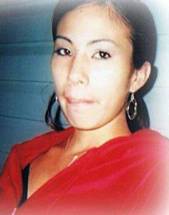Financial stress taking toll on our mental health With the price of everything going up, shoppers forced to make difficult choices
Read this article for free:
or
Already have an account? Log in here »
To continue reading, please subscribe:
Monthly Digital Subscription
$0 for the first 4 weeks*
- Enjoy unlimited reading on winnipegfreepress.com
- Read the E-Edition, our digital replica newspaper
- Access News Break, our award-winning app
- Play interactive puzzles
*No charge for 4 weeks then price increases to the regular rate of $19.00 plus GST every four weeks. Offer available to new and qualified returning subscribers only. Cancel any time.
Monthly Digital Subscription
$4.75/week*
- Enjoy unlimited reading on winnipegfreepress.com
- Read the E-Edition, our digital replica newspaper
- Access News Break, our award-winning app
- Play interactive puzzles
*Billed as $19 plus GST every four weeks. Cancel any time.
To continue reading, please subscribe:
Add Free Press access to your Brandon Sun subscription for only an additional
$1 for the first 4 weeks*
*Your next subscription payment will increase by $1.00 and you will be charged $16.99 plus GST for four weeks. After four weeks, your payment will increase to $23.99 plus GST every four weeks.
Read unlimited articles for free today:
or
Already have an account? Log in here »
Hey there, time traveller!
This article was published 08/06/2022 (1277 days ago), so information in it may no longer be current.
Lately, 24 hours can bring a world of change for grocery stores.
Within that time, Munther Zeid might revise the prices of 20 items at Food Fare.
“As orders are coming in, we’re updating tags,” the grocery chain owner said. “I’ve never seen anything like this.”

Pre-pandemic, pre-inflation spike, Food Fare would change around a dozen prices a week, Zeid said.
“Everything’s going up… it seems to be the whole store,” he said. “You’ve got suppliers passing on delivery fees or fuel surcharges, which adds to the cost of goods.”
He called the regular price increases frustrating and wondered if suppliers’ costs will ever decrease.
“In the end, who pays for it all? The customer,” he said.
More than one-third of Canadians — 38 per cent — call money their biggest stressor, according to the FP Canada 2022 Financial Stress Index. The financial planning organization released results Tuesday.
“We used to buy groceries… twice a week, but now, it’s just once a month,” said Iris Separa, a shopper at Walmart on McPhillips Street Wednesday.
The 42-year-old mother said she prioritizes healthy products for her two children, which means cutting out marshmallows and candy.
“Before, whenever we’d go shopping, (the) kids would want to have sweets or juices or whatever. Now we do not do those unnecessary things,” she said.
The price of fuel has brought further stress, Separa said. The family has one source of income, her husband’s.
“We’d rather stay at home, just be in the parks or even walk with the kids in the neighbourhood. We really don’t want to spend much on the gasoline,” she said.
Regular gas prices hit a record $2.079 per litre in Winnipeg Monday.
The financial strain, plus the long winter, has taken a toll on Separa’s mental health.

“Winter has been so long, and then summer’s here, and then winter again in a few more months,” she noted.
Thirty-five per cent of survey respondents said financial stress is leading to anxiety, depression or mental health issues.
The number jumps to 45 per cent when looking at 18 to 34-year-olds.
Stress increases when wages and disability benefits fall behind inflation, said Marion Cooper, CEO of the Canadian Mental Health Association’s Manitoba chapter.
“When people feel economic insecurity, that has a negative impact on their overall health in general,” Cooper said.
Such insecurity can lead to feeling hopeless, disconnected and anxious, she said. Some people take on second jobs to support themselves and their families, leaving less time for self-care.
“As those experiences increase and the situation becomes more prolonged, that certainly can lead to formal mental-health struggles like depression and anxiety,” Cooper said.
Seeking help when you’re feeling pressure from circumstances outside your control is always encouraged, Cooper said.
“But, the bigger issue here is, at a societal level, Manitoba has the lowest minimum wage in all of Canada,” she said.
“We need to be making sure that it’s not just left up to the individual to cope with these challenges, but that our government and society is paying attention to the impact this is going to have on the health of Manitobans.”
The provincial government has passed Bill 44 (Employment Standards Code Amendment Act, Minimum Wage) and can raise minimum wage beyond the 40-cent increase set for October.
Financial stress outranks personal health, work and relationship stress, according to the stress index survey.
Groceries, gas and inflation’s impact on the cost of goods and services were respondents’ top three contributors to financial stress, at 68 per cent, 56 per cent and 55 per cent, respectively.
Nearly all respondents — 92 per cent — worried about the rising cost of living.
‘You have to think twice before buying anything,” said Rahul Hans, who was shopping at a Walmart Wednesday.
“You have kids, you have family, you always have to spend on so many things.”
Hans quit his job as an Uber driver last month because of gas prices and wages and now drives for the City of Winnipeg. Still, he’s mindful of the products he puts in his shopping cart.
“At first, we bought whatever we wanted. Now, we are just choosy,” he said.
Manitoba’s year-over-year inflation rate increased 7.5 per cent in April, passing the national average of 6.8 per cent.
The stress index survey was conducted via Leger’s online panel from April 12 through April 20. A probability sample of the same size would yield a margin of error of +/- 2.2 per cent, 19 times out of 20.
gabrielle.piche@winnipegfreepress.com

Gabby is a big fan of people, writing and learning. She graduated from Red River College’s Creative Communications program in the spring of 2020.
Our newsroom depends on a growing audience of readers to power our journalism. If you are not a paid reader, please consider becoming a subscriber.
Our newsroom depends on its audience of readers to power our journalism. Thank you for your support.





